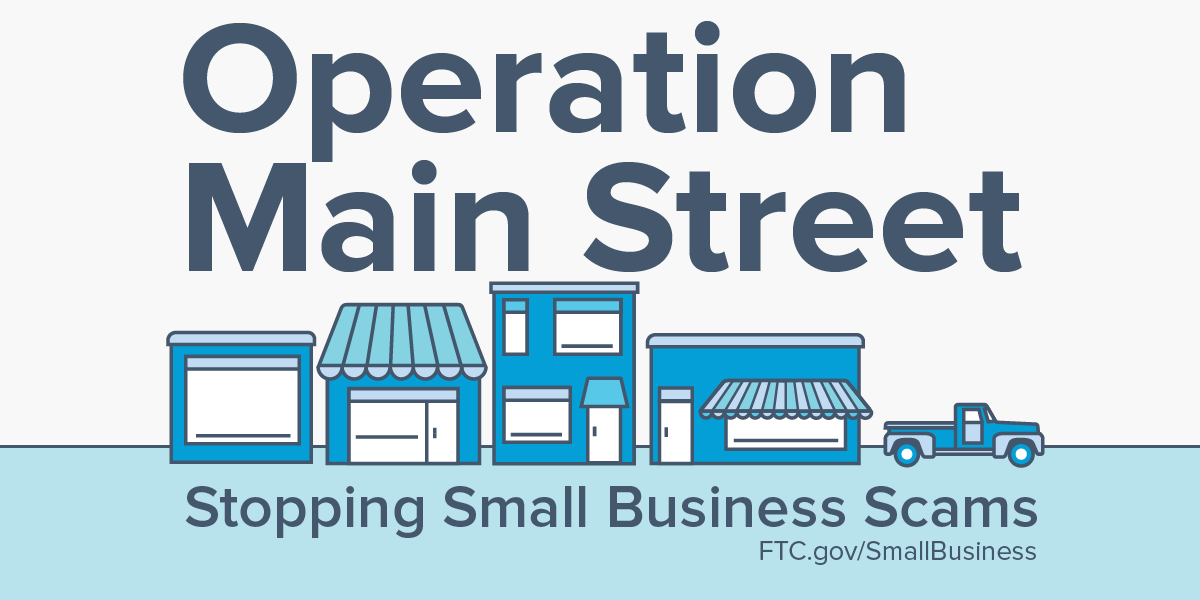At the FTC, our mission is to protect consumers, including small business owners. That’s why, when we see scammers taking money from small businesses, we step in. Today, the FTC announced Operation Main Street: Stopping Small Business Scams, a coordinated law enforcement and education effort with state and federal partners, as well as the Better Business Bureau (BBB), to stop scams that target small businesses.

What did those scammers do? The law enforcement actions in Operation Main Street involved defendants that tricked businesses into paying for materials they can get free – or paying for expensive license renewals that were not due. In other schemes, the defendants sent unordered merchandise and intimidated employees to pay for office supplies that no one in the business had ordered (or wanted). In one FTC case, the defendants used robocalls to contact business owners, claiming to be affiliated with Google. The defendants lied, saying the business would not show up on Google searches unless it paid for the defendants’ so-called services.
Because education is critical to spotting and avoiding scams like these, the FTC today also announced a partnership with the BBB to help alert small businesses about scams and how to avoid them. The BBB’s new research report gives data about the frauds that are directed at small business, and helps empower small business owners and employees to speak up and report fraud. Those reports help law enforcers tackle scammers, and can lead to cases like the ones announced today.
So what can you do to protect your own business against scams? Training your employees is a first step. Share with them our new publication, Scams and Your Small Business. Order it free at FTC.gov/bulkorder. Then, stay up to date on new scam and business advice by signing up to get our business blog at FTC.gov/subscribe. Encourage others to do the same.
